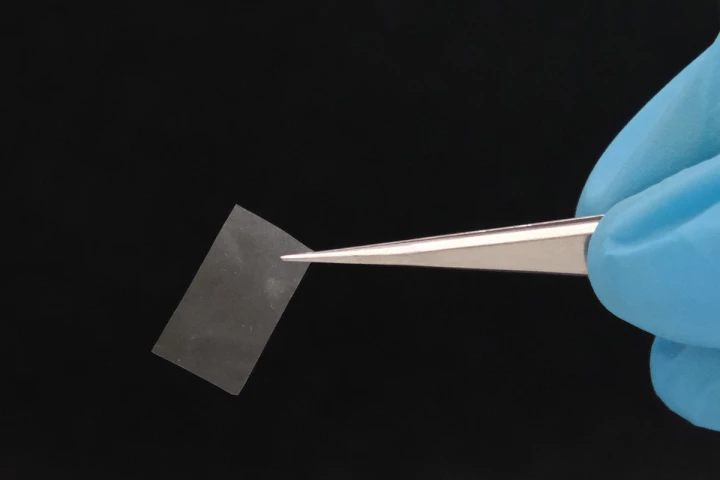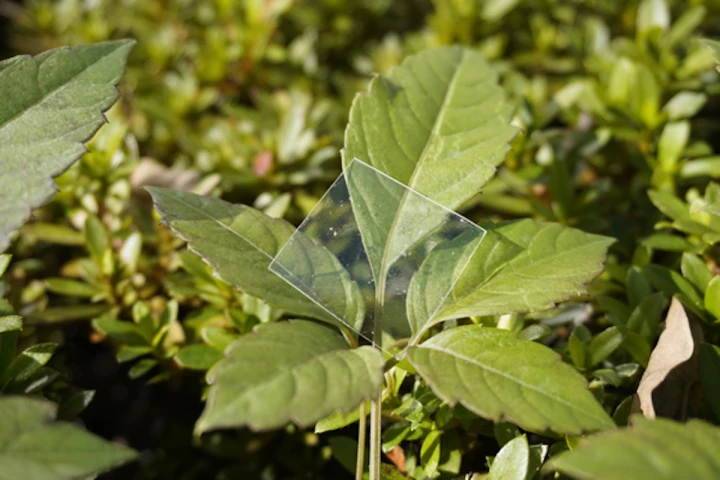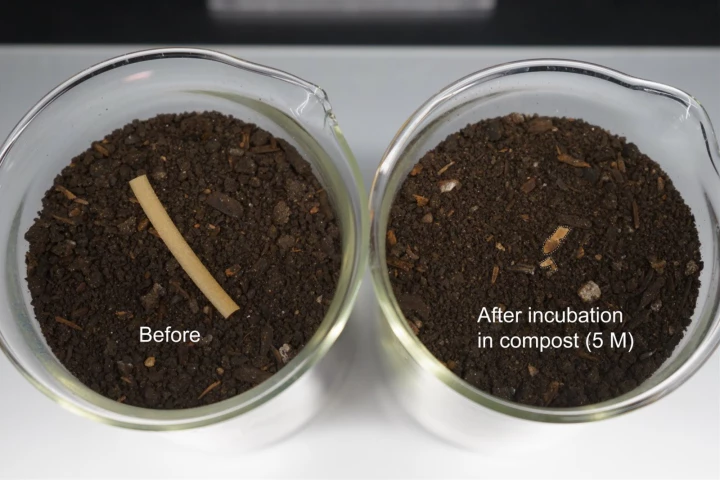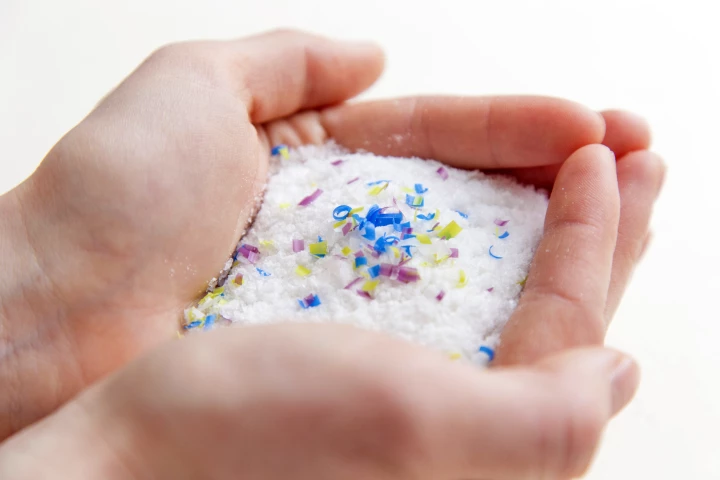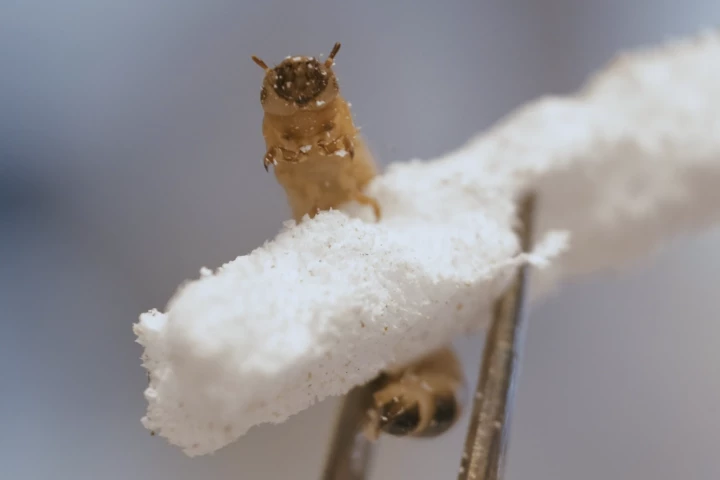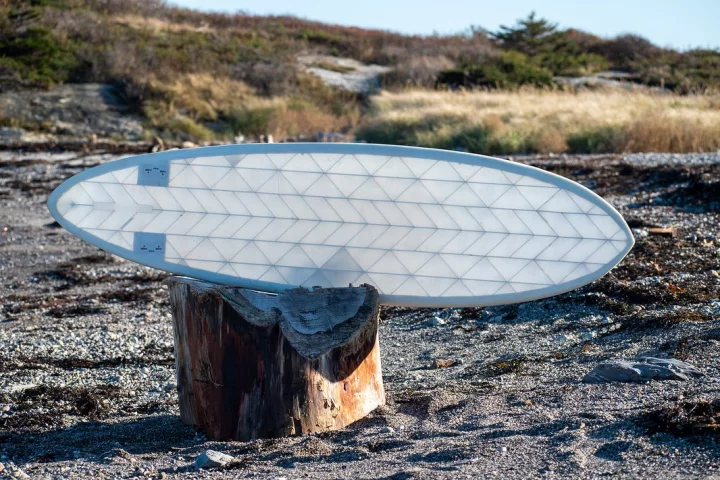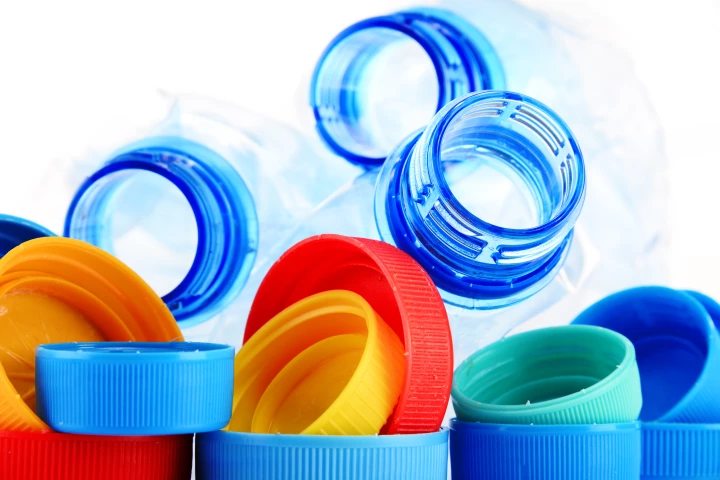Plastic
-
Researchers in Switzerland have developed a new film-like material that incorporates living cells from fungi, so it's biodegradable and can help break down waste too. Oh, and you can eat it, if you're curious like that.
-
Scientists at RIKEN in Japan have developed a new type of plastic that’s just as stable in everyday use as regular plastic, but dissolves quickly in saltwater, leaving behind only safe compounds.
-
By now, you've no doubt heard that modern living is filling our bodies with microplastics. But an alarming study now shows just how much of the non-degradable particles are in our brains, and how much higher they are in dementia patients.
-
If you've ever had a packing peanut stick to your clothes as you unbox your Amazon delivery, then you know that Styrofoam is pretty good at generating static electricity. A new invention turns that quality into a workable energy-saving solution.
-
A new biodegradable plastic embedded with spores of plastic-eating bacteria manages to break down 90% of the material after five months in landfill. Weirdly, this actually made the plastic tougher and stronger during use.
-
Even when it’s ground into microparticles, 97% of an algae-based plastic biodegrades in compost and water in under seven months, a new study has reported. The researchers hope their plastic will eventually replace existing petroleum-based ones.
-
Scientists have created a lab-grown microbiome like the one found in a tiny plastics-munching worm, and it has the potential to efficiently and sustainably biodegrade the world's most common and troublesome plastics – all without the need for the worms.
-
Exposure to phthalates, a commonly used chemical in plastics, has been estimated to be the primary cause of one in 10 preterm births, according to a new study led by researchers from the New York University Grossman School of Medicine.
-
Surfers seem like a fairly eco-minded bunch, which is why it's ironic that most surfboards are made of petroleum-based, non-recyclable expanded polystyrene (EPS) foam. The Sea Mink is different, in that it's made of 3D-printed recycled plastic.
-
Japanese scientists have developed a new type of plastic that can easily break down on demand into its base components. In seawater it starts to break down into food for marine life, and just to top it off, it can self-heal and remember past shapes.
-
For the first time, scientists have identified a biochemical mechanism linking attention deficit hyperactivity disorder and autism spectrum disorder with common but problematic compound Bisphenol A (BPA), which can leach into food and drink from packaging.
-
Researchers have developed a way of recycling polyester. Their new method is simple, non-toxic for humans and the environment and, what’s more, it preserves the integrity of the cotton removed from the fabric so that it’s ready for reuse.
Load More
